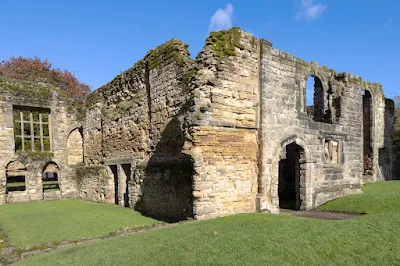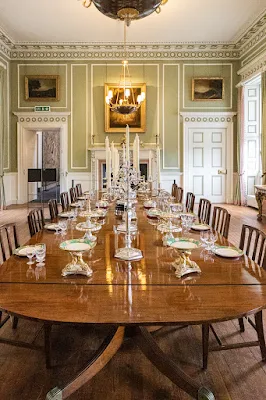This castle became a popular place to visit in the 19th Century when it was mentioned in Walter Scott's novel Ivanho (1819).
The castle was an important royalist base during the Civil War. William Lord Hastings, a political figure was a supporter of King Edward IV and the Yorkists against the Lancastrians in the Wars of the Roses. Ashby de la Zouch was the creation of William Lord Hastings who was licensed by Edward IV to fortify this site along with Kirby Muxloe, a courtyard residence with a moat. Presently it is closed to visiters so sadly I could not visit. Hastings was also an artistic patron and his wife's sister is depicted in the central panel of an altarpiece by Hans Memling (d1494).
Hastings was executed for treason after a council meeting in the Tower June 1483, a source of consternation. When Richard ordered the execution of Lord Hastings as the Council meeting descended into chaos, he was labelled a murderer and that particular piece of mud has stuck ever since. Annette Carson has published a scholarly book Richard Duke of Gloucester as Lord Protector and High Constable of England in which she explains the technical issue of the time. Shakespeare mentions the event in Richard III.
The castle garden was fascinating the rectangular garden was divided by a walkway One half is a broad-level lawn and the other subdivided by high banks and interlocking spurs. The spurs may be evoked contemporary bastion fortifications for artillery.
Here are a few images of the ruin and some illustration of the brickwork used to build the towers.


















































